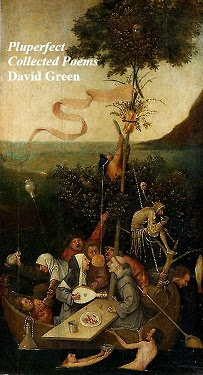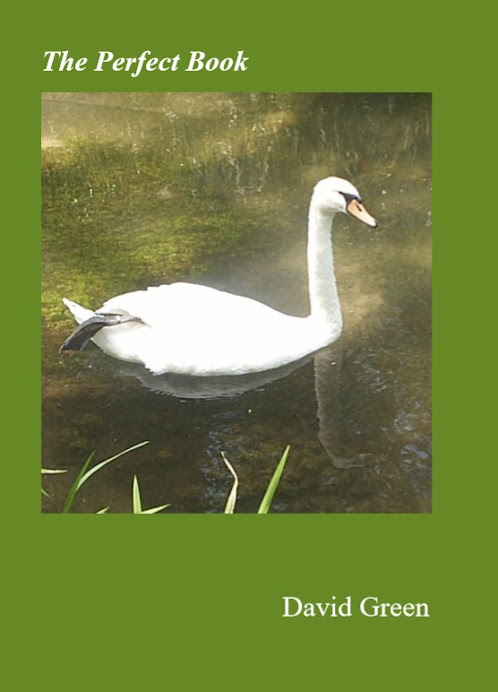One of the more convincing ways one can persuade oneself that one is doing something worthwhile when no longer having to go to work for a living is reading some of the books one ought to have read. It seems I'm some way behind in certain areas. At least a couple of my friends who read proper books read Crime and Punishment many years ago.
Having been a teenage reader of Solzhenitsyn, I can hardly be accused of not taking on heavy Russian novels, or maybe that's why, but I always imagined Dostoevsky would be hard work. Not as hard as Finnegans Wake but harder than Proust. I simply didn't take to Gogol. I'd prefer George Eliot to Dickens every time. Henry James lurks on the outskirts of necessity, I recently saw something that made me think Borges would be good. I don't think one can ever say one's read everything one ought to have. There's always plenty missing from those 100 Books To Read Before You Die lists.
But, as the blurb on the Wordsworth Classics edition says, Crime and Punishment is 'one of the...most readable' of novels. But nobody ever took the trouble to tell me. One, hopefully not only I, have some sympathy- or even empathy with Raskolnikov, whose name doesn't mean 'rascal' but comes from the Russian for 'schism, break asunder', it says here. I shouldn't be too definitive about that yet, only at the end of Part 1 when he's just lured himself into committing a double murder which I can't help feeling is going to turn out to be inadvisable. So far, an obvious comparison is with L'Etranger for its amoral implications and if that holds, Dostoevsky will be on his way to an exalted position on my hit parade of novelists because if you get anywhere near Albert Camus you are very near the top. It might even be a case of Fyodor, Now that I've Found You I Can't Let You Go but there's a long way to go yet. A horse I backed the other night was three lengths clear after the second last and it looked as if it was all over but there was a bit more shouting and it wasn't.
We will see but certainly the next week or so of reading looks like being the pleasure it is expected to be.
As the writing might be, too.
A few hundred words, most days if I can, have got the Twentieth Poetry in English book up to nearly 10 thousand words by doing the easy bits. It's called C20th at present, with a dreary subtitle like English Poetry from 1898 to 1999 and then an introduction that sets the criteria of being about poems written in the English language in the British Isles. One has to be so careful even if it isn't going to be remotely academic or definitive, despite the accumulation of footnotes which I've almost come to enjoy. But, taken as a slow process, punctuating the quotes with some sundry commentary but, increasingly importantly, all the off-hand, blasé truisms I've thought up about poetry over the last 45 years.
What might have set out as being intended to be a fairly sensible survey of something I thought I knew about and something I could do, maybe it will become a maverick, if genuinely 'mainstream' point of view and some sort of contribution to 'scholarship' on the subject.
I doubt it but you never know.
By now the point about writing is the enjoyment of doing it, not that of who reads it or any praise it accrues as a by-product.
I was, at least at some time, an admirer of Bill Shankly but not in the end of his dictum that football was more than a 'matter of life and death'. A better manager than him, Brian Clough, demonstrated that he thought otherwise.
Dr. Samuel Johnson expressed the view that No man but a blockhead ever wrote except for money.
I have come, sir (or madam), to admire the vastly greater part of Dr. Johnson's writing this side idolatry but that is one of the finer details that I refute. Fine writing is done in exchange for cash, as Handel wrote his music, Shakespeare his plays and Damien Hirst put a dead shark in a tank of formaldehyde but there's more to it than that.
I don't know if it's better that second-best teams of footballers are sent out to represent their clubs professionally in the next-to meaningless League Cup as they were this week or that amateur poets enjoy writing poems that are mostly of even less consequence but if we take enjoyment as the best reason for doing anything once the demands of avoiding fiscal depravity have been met, I'm with the amateurs.
I need to spend some time with the poems of Paul Muldoon in order to decide with which glib remarks to sum up his colossal, if evasive, contribution but, wow, it's a job to relish without worrying that I might not get it right. I will enjoy doing that and the enjoyment, rather than whatever the result of my casual research turns out to be, will have been the point.
.jpg)





.jpg)
.JPG)











.JPG)
.JPG)








